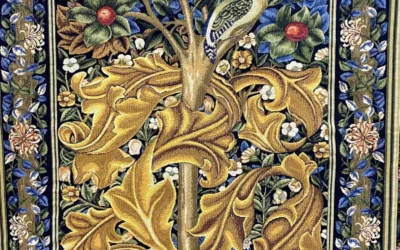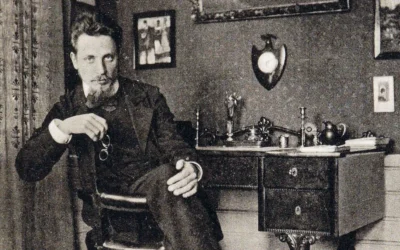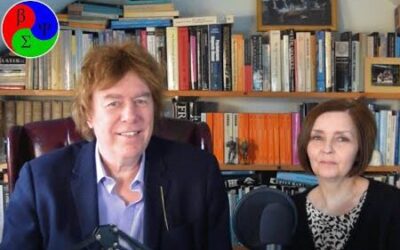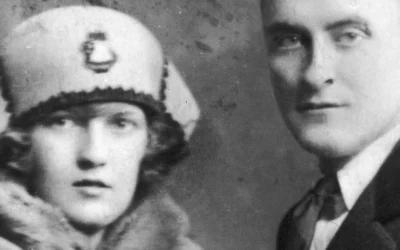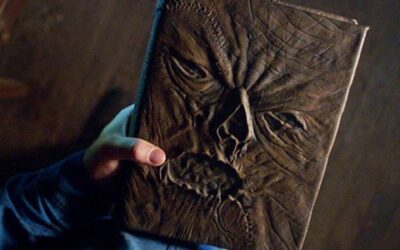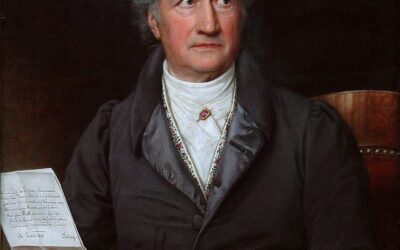Who Was William Morris? William Morris was a designer known for his exquisite tapestries depicting scenes from myth, legend and medieval romance. More than decorative objects, these woven works invite the viewer into a mesmerizing world of archetypes, hidden meanings and the unconscious stirrings of the soul. Morris's oeuvre exemplifies many of the insights of depth psychology - the recognition that powerful symbols, when engaged with imaginatively, can connect us to profound truths within the psyche. The Mythic...
Rainer Maria Rilke’s Insights into the Poetic Soul
Who was Rainer Maria Rilke? "Find out the reason that commands you to write; see whether it has spread its roots into the very depth of your heart; confess to yourself you would have to die if you were forbidden to write." ― Rainer Maria Rilke, Letters to a Young Poet Rainer Maria Rilke, an Austrian poet and novelist who lived from 1875 to 1926, is widely recognized as one of the most lyrically intense and spiritually profound poets in the German language. His work explores themes of solitude, the inner life, the...
The Photography of Spider Martin: Capturing the Struggle for Civil Rights
Who Was Spider Martin? Who was Spider Martin? In times of great societal upheaval and injustice, the power of visual storytelling can be a catalyst for change, awareness, and healing. The photographs of Spider Martin, particularly his documentation of the Civil Rights Movement and the Selma to Montgomery marches, stand as a testament to the transformative impact of photography in the face of trauma and inequality. Spider Martin, born James Martin in 1939, was an American photographer who gained recognition for...
Steven Richards: Integrating Jung with Spiritual Traditions for Transformation
Who is Steven Richards? Introduction: Steven Richards' Integral Approach Steven Richards is an influential contemporary Jungian analyst and author who has made significant contributions to the integration of Jungian psychology with Eastern and Western spiritual traditions. His work builds upon the foundations laid by Carl Jung, expanding the scope and applications of analytical psychology for personal and collective transformation. Richards' integral approach seeks to bridge the insights of depth psychology with...
The Anima of the Great Gatsby and the Animus of History
The Expansive Decadent Ego of the Animus and the Introspective Bust and Decline of the Anima as Parts of Empire Cultures wax and wane. Empires that seem like part of the cosmos itself fall like gunshot victims into a pool or lines on a bar chart. It is the rare work that can speak to both the sparkle of spectacle and the timeless inevitable real it distracts us from. The Great Gatsby was an immediate success and then forgotten and then rediscovered. It was forgotten because the Jazz age was a, beautiful...
The Lens of Dead Genres: Insights into Sociology, Psychology, and Anthropology
Main Ideas and Key Points: Literary genres evolve in response to changing social, cultural, and historical contexts. Genres that lose relevance or appeal as society changes may fade into obscurity. The decline of genres often reflects broader sociological, psychological, and cultural shifts. Examples of dead or dying genres include: Graustarkian romances Nurse novels Penny dreadfuls Plantation romances Utopian fiction Edisonade science fiction Genres die when they no longer meet the needs or reflect the...
The Villain Within: Applying Jungian Psychology for Fiction and Screenwriting Part 1
part 1: https://gettherapybirmingham.com/the-villain-with…nd-screenwriting/ part 2: https://gettherapybirmingham.com/using-jungian-ps…d-fiction-part-2/ part 3: https://gettherapybirmingham.com/applying-jungian…onality-theories/ Read More on Jung here: Carl Jung's Major Influences Jungian Analysis Archetypes Jung’s Method Jungian Thought How do you Write a Villain? In the realm of storytelling, villains serve as the embodiment of the hero's greatest challenges and fears. They are the immovable force that the...
Wolfgang von Goethe: A Visionary Poet and Thinker
Who was Wolfgang von Goethe? Johann (1749-1832) was a German writer, philosopher, scientist, and statesman whose works and ideas had a profound impact on the development of Western literature, thought, and culture. Born in the Age of Enlightenment and living through the tumultuous years of the French Revolution and the Napoleonic Wars, Goethe was a key figure in the transition from the classical to the romantic era in European literature and thought. Goethe's life and work were characterized by a deep commitment...

